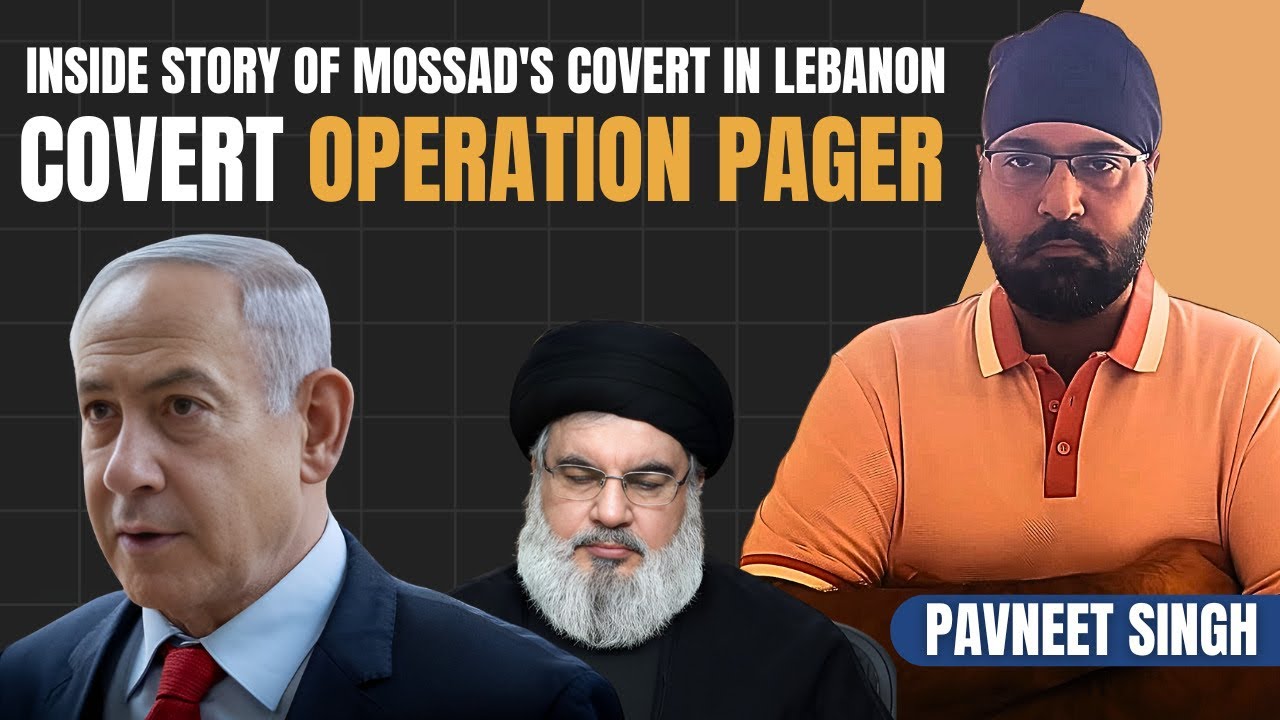What is Hezbollah and how is it linked to the Israel-Gaza war? | Start Here
Summary
TLDRHezbollah, a Lebanese group rooted in Shia Islam, emerged in the 1980s amidst Lebanon's civil war and Iran's Islamic Revolution. It resists Israeli occupation and U.S. influence, with Iran's backing. Evolving from a militant group to a political party with parliamentary seats, it's become a powerful actor in Lebanon, providing social services and maintaining a large, undisclosed number of fighters. Its military strength and political influence have made it both a defender of Lebanon's Shia community and a contentious force within the nation's fractured political landscape.
Takeaways
- 🚩 Hezbollah is a Lebanese group with deep roots in politics and society, often more powerful and better armed than the Lebanese Army.
- 🏹 Classified as a terror group by some countries, Hezbollah sees itself as a resistance movement against US and Israeli policies.
- 🕋 The name 'Hezbollah' means 'Party of God', indicating its religious movement origins, though not all Shia Muslims in Lebanon support it.
- 🔗 Hezbollah is closely aligned with Iran, taking orders and being part of Iran's regional military structure, particularly the Islamic Revolutionary Guard Corp (IRGC).
- 📈 The group's rise can be attributed to three main factors: the Shia factor in Lebanon's divided society, Iran's 1979 revolution, and Israel's 1982 invasion of Lebanon.
- 🔧 Hezbollah's tactics have included assassinations, hostage-taking, suicide attacks, and bombings, with a shift towards political power post-civil war.
- 🏛️ Since the 1990s, Hezbollah has evolved into a political party with seats in Lebanon's Parliament and ministers in the cabinet.
- 🛡️ Despite being a political entity, Hezbollah retains a strong military wing, which it claims is necessary to fight Israel.
- 🏙️ The group is seen by some as a 'state within a state', providing social services and having significant influence in Lebanon.
- 🌐 Hezbollah's activities extend beyond Lebanon, being part of Iran's 'axis of resistance', which includes groups in Iraq, Syria, Gaza, and Yemen.
Q & A
What does Hezbollah mean and what are its various identities?
-Hezbollah means 'party of God' in Arabic. It is a multifaceted organization that includes a religious movement, a political party with members in Lebanon's Parliament and ministers in the cabinet, and an armed group.
How is Hezbollah connected to Iran?
-Hezbollah is closely connected to Iran and is often characterized as part of Iran's armed forces, specifically the Islamic Revolutionary Guard Corps (IRGC). It receives training, funding, and weapons from Iran and serves the interests of the IRGC's Quds Force.
What are the estimated numbers of Hezbollah fighters?
-Hezbollah claims to have 100,000 fighters, but the actual number is difficult to confirm. Experts suggest it could be between 20,000 and 50,000.
How did Hezbollah emerge and what factors contributed to its rise?
-Hezbollah emerged during the chaos of Lebanon's civil war in the 1980s. Factors contributing to its rise include the marginalization of the Shia community in Lebanon, Iran's 1979 Islamic Revolution, and Israel's 1982 invasion of Lebanon.
What was Hezbollah's initial stance and how has it evolved?
-Initially, Hezbollah defined itself as a resistance force against Israeli occupation. After the civil war, it evolved into a major power broker, establishing a political party and providing social services in areas it controls.
Why did Hezbollah keep its weapons after the end of the civil war?
-Hezbollah maintained its weapons, stating the need to fight Israel and protect its interests. It has been involved in several conflicts since, including the 2006 war with Israel.
What is Hezbollah's role in Lebanon's political landscape?
-Hezbollah is a powerful political actor in Lebanon, often described as a state within a state. It has ministers in the government and provides social services, but its armed status is seen as problematic by some who believe it uses its weapons for political gain.
How has Hezbollah's involvement in the Syrian War impacted its standing?
-Hezbollah's involvement in the Syrian War to support the Iranian ally, Bashar Al-Assad, has given its fighters combat experience but also alienated some supporters who felt it was not Hezbollah's role to get involved.
What is Hezbollah's current relationship with Israel?
-Hezbollah's relationship with Israel is tense and hostile. It has been involved in rocket attacks against Israel and has demanded that Israel end its war on Gaza.
What is Hezbollah's role in Iran's regional strategy?
-Hezbollah is a key part of Iran's regional strategy, known as the 'axis of resistance,' which includes various groups supported by Iran to spread its influence. Hezbollah fights as a proxy for Iran, including in the Syrian conflict.
What is the current situation between Hezbollah and Israel, and the potential for a wider conflict?
-The current situation is tense with exchanges of rocket fire and military actions. While a full-blown war is a possibility, both sides are cautious due to their capacity to inflict significant damage on each other.
Outlines

هذا القسم متوفر فقط للمشتركين. يرجى الترقية للوصول إلى هذه الميزة.
قم بالترقية الآنMindmap

هذا القسم متوفر فقط للمشتركين. يرجى الترقية للوصول إلى هذه الميزة.
قم بالترقية الآنKeywords

هذا القسم متوفر فقط للمشتركين. يرجى الترقية للوصول إلى هذه الميزة.
قم بالترقية الآنHighlights

هذا القسم متوفر فقط للمشتركين. يرجى الترقية للوصول إلى هذه الميزة.
قم بالترقية الآنTranscripts

هذا القسم متوفر فقط للمشتركين. يرجى الترقية للوصول إلى هذه الميزة.
قم بالترقية الآنتصفح المزيد من مقاطع الفيديو ذات الصلة

Exclusive: Netanyahu Claims Hezbollah's Leadership Eliminated | News9

How The Lebanese Got So Good At Smoking American Soldiers

History of Islamic Iran explained in 10 minutes

Iran Entry Confirmed | யூதர்களுக்கு அவசர செய்தி | Israel Urgent Message To Jews | TP

طبول الحرب تدق بين حزب الله وإسرائيل.. وأميركا تحذر من فاتورتها | #ملف_اليوم

Operation Pager- Inside Story of Mossad in Lebanon
5.0 / 5 (0 votes)
